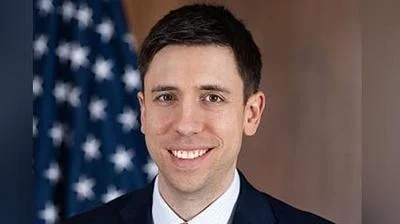IDOC Adult Advisory Board met June 28.
Here are the minutes provided by the board:
Attendance: IDOC - Director Rob Jeffreys, Chief Hammers, Chief Hughes, Chief Lindsay, Chief Williams, Chief Garnett, Shelith Hansbro, James Pagano, Naomi Puzzello, Jennifer Parrack, and Dr. Hinton
Adult Advisory Board: David Olson, and Nneka Jones Tapia
Absent – Sheriff Watson
Resigned – Phillip Whittington
Agenda:
1) Welcome and introductions
2) Approval/review of minutes
3) Director’s report (director can highlight some of the major accomplishments this year; goals for next FY, major changes to IDOC/MSR this coming year with effective date of new law re: changes in length of MSR, status of mental health litigation—since that is Nneka’s expertise)
4) New Business (we need to discuss composition of board and getting new members/appointments and selection of a chair process)
5) Public Comment
6) Adjournment
Introduction were made by IDOC and Adult Advisory board members. Each stating their job title and duties within.
Dave brought us up to date on Phil resignation from the board…….
Phil Whittington, as you all know, was Chairing the Adult Advisory Board. He moved from the John Howard Association to take a position with the office of the Chief Judge in Cook County, which is great for him. It's a good career move, and he's enjoying that. To serve on the board, he needs to get the permission of the Chief Judge and there was concern over there being a conflict. So, he resigned from the board.
Filling the vacancies on the board is a concern for everyone, so, we’ll need to work with the department and the governor’s office to get some new members appointed. Confirmation was made, that these are not Senate confirmed positions, but General Assembly appointments.
Dr. Jones-Tapia was the first one Shelith had on-boarded, still need to get her state ID and her IDOC one too.
Minutes were discussed and the format they would be going forward. With only two members, minutes could not be approved from the previous meeting.
IDOC\MSR:
The department is doing some amazing things despite the pandemic. One of the major changes is the IDOC|MSR with the new law effective and changing the length of our terms. The Safety Act has indeed changed those. We are in the process of implementing that. We were in a meeting earlier this morning
as well as multiple other meetings relative particularly to the class threes and class fours and whether the PRB is going to make determinations to have that parole term attached to those. So, we’ve sat through many meetings, given them the risk assessments. We are trying to also plot out a plan for the continuation of processing of individuals at county who are turnarounds, particularly the ones that are class threes and class fours. And what we’re going to do with those individuals relative to staffing, to paperwork, to host site provision, MSR orders. We will continue to work with PRB to gets all of this lined up.
If they do indeed determine that those class threes and fours, or at least a subset of them, do not need an MSR, then we will potentially discharge from custody.
Mental Health Litigation:
Rasho v. Jeffreys has been vacated by the Seventh Court of Appeals. We’re currently in conversation with the plaintiffs on any additional information relative to that.
Chief Fanning, did you want to provide any other update on Rasho?
The current expiration of the court’s jurisdiction and ratio is set for July 22nd and as a result, the department, through its attorneys, is communicating with the plaintiffs about the future of that litigation and where it may be going. That’s about all I could add to it right now.
Education and Vocational:
So, we are finally working to fill our education facility administrator positions in every one of the facilities for many years. These are positions former members were always concerned about. In order to be able to facilitate the appropriate administration over our educational services., we have been able to work with CMS, as well as work with the union to get them passed the class study. Which now allows us to be able to be hired in every one of our facilities. And make significant progress in education.
We are also working with our community college vendors on new contracts. We have Danville Community College, Lakeland and Kaskaskia to introduce some new vocational training. So, with the help of James and with the help of others, we underwent three different studies. We also had one with some Capstone students, which was just an amazing process to take a look at what the community and what the business community in particular was needing and who a second chance friendly.
We broke it up into regions and different vocations that our individuals in custody could potentially benefit from, as well as the community businesses as well.
The pandemic showed us mush, so, we did some contract negotiation with those community colleges to look at different vocational offerings. We have enhanced efforts with warehousing and logistics, because as we you look at Amazon warehouses, it’s a huge opportunity that our individuals can do and have been hired to do. We’ve worked with the Department of Labor on a grant that Jennifer is currently working on for welding. So, we are getting welding certifications for individuals before they are leaving our custody. We’re looking at HVAC services and just a slew of others, but we’re trying to finally build up our offerings to meet the needs of what the market is demanding at this point. We’ve also worked with the Illinois Higher Education and Prisons, as well as one of the task forces to examine our higher educational offerings.
James was instrumental in creating a new policy that governs higher education in prisons for us, particularly for those for credit bearing classes. Currently, we are building out our university programs. We’ve got partnerships with Northwestern, North Park, DePaul Prison Neighborhood Arts Project, which is through Northeastern Benedictine, Eastern Illinois University, Augustana. We just signed a new MOU with Knox and St. Louis University has now come on as well as a second chance Pell recipient. Also, Augustana was awarded that too.
Re-Entry:
We have implemented re-entry resource rooms in every one of our facilities which are set-up with computers. Allowing our individuals access to whitelisted websites so they can do job searches and resume building and a multitude of other things.
Jennifer and her team have worked extremely hard to do WebEx in each series. So, every month we have different agencies and advocacy services, employers, coming in virtually to present to the individuals in custody and it has been a huge success.
Working hand in hand with the Office of Health Services, as well as the PRB to review individuals who are potentially eligible for the Joe Coleman Medical Relief Act, or what many people refer to as compassionate release, so that we have established a process for that release. Challis has been instrumental in that as well. To get individuals who are dying or individuals who cannot take care of themselves reviewed for a potential release. If the Department of Corrections and the PRB believe that they certainly do meet those criteria, medical furlough will be ending. We do have some a few individuals, a handful actually, that are still out on medical furlough and not necessarily out on compassionate release. The governor’s office did extend the most recent executive order, but we are looking at a potential expiration of that within the next two weeks. All of those individuals that we could potentially convert over to the Joe Coleman or review with other release mechanisms, I think we’ve exhausted almost every effort.
The reentry team conducted training with all the reentry counselors in the month of May was on SSI enrollment, which is really important.
Medicaid enrollment:
We've also really ramped up our Medicaid enrollment. We have a 98% engagement rate for those, Jennifer and her team have done again a marvelous job with state ID's. We are actually able to get state IDs in individuals’ hands prior to releasing from custody. Before they would only either leave with nothing or leave with a Department of Corrections ID, which was rendered fairly useless. So, through Jennifer's work, we've partnered with the Secretary of State, and now individuals are actually able to get that state ID before they leave, as long as they have their birth certificate and Social Security number or Social Security card, which the counselors and other staff help them to get why they are in the inside.
SNAP Program:
Jennifer and James have worked on SNAP pilots, so we are slowly but surely rolling that out as we can to ensure that individuals are enrolled in SNAP benefits prior to the release
Gate Violators:
Jennifer and Sarah have been working on the reduction of our gate violators. We have had a large backlog of individuals, particularly those individuals who are convicted of sex offenses, as well as individuals who needed higher levels of either medical care or mental health care that we had absolutely nowhere to place. Improvements have been made to find some housing with continued site visits with our mental health providers. Sarah is working diligently to kind of clear out our Murphy class and get those individuals placed. Now we're down to the individuals that are extremely hard, hard, hard to place, most likely needing nursing home placements as well as structured care. So, that remains a challenge for us. But again, they've made significant improvements on that relative to the clinical areas of the
Risk Assessments:
We continue to roll out those risk assessments, with a little over 70% of the population assessed. James is fantastic because he keeps those numbers for us, even though that's an arduous process, because it involves multiple systems and pulling that data, as I'm sure both of you know, particularly through the pandemic. We have increased significantly our awards of earned discretionary time. We continue to do that with the assistance of some legislative changes. We now have the ability for individuals who are convicted of five years or over to award them up to 365 days of discretionary credit as long as they're statutorily eligible. For the other population of five years and under, we still have the ability to award 180 days. Our numbers continue to look very good on that front with our awards. There's also been a significant increase for earn program sentence credit that fluctuates a little bit with our ability to be able to offer programs, particularly when we were on quarantine, we had to get very creative with those offerings. But that program sentence credit as well as the programs that are applicable again, thanks. In addition to some statutory changes, we're now able to award for work participation, self-improvement, a variety of other things that we were not able to award for. So that that has made a difference in the lives of the population to.
Last summer we were able to send an MOU with the Social Security Administration. This opens the door for additional placement for our high medical and additional services, potentially in-home services, and then placement options for our high utilizers within the mental health system.
So that is something that we now can start that process pre-release. We're focusing mostly on Dixon, Logan, Pontiac and Joliet. I had a conversation with our medical team at DOC yesterday around individuals that qualify automatically based on their medical diagnosis as well. So, we can start that process which will be helpful prerelease for funding post-release and then on the WebEx and Reach series, this one we're super proud of. We kicked it off in the month of April for second chance month, and since then we've held over 25 plus seminars, workshops, and events with over 1000 people that have been reached. The beauty of the virtual is we have people that come different organizations, other state agencies that can present, and we have the ability to have multiple facilities on at one time, so it reaches more people. We've been able to figure out how to pull from our 360 where we know if we have people at different facilities releasing back to the Champaign area and we have a presenter from Champaign, we're able to notify the reentry counselors at the facilities. Please have these people in the room they're releasing from your facility in the next six months. They have an approved host site, or we believe are potentially coming back to Champaign.
Some of the prisoners we've had is the Safer Foundation on their Know Your Right series, which is multiple topics Chicago votes. They've done some work with us on the civics goodwill did a forklift class. We have multiple workforce areas across the state that are presented IDS has presented RC sex have been presenters. Joseph Greenaway say is everyone's favorite. He is very well liked, and we love having him present.
Population – COVID numbers:
Currently our total population is 29,320 72%, and our current staff headcount is 12,556 and 78% of our staff are currently vaccinated. Our current. Positive COVID cases. Right now, we have 120 staff that are COVID positive and 129 individuals in custody that are positive are staff. Positive rate is 0.0 10%. And then our individual custody positive rate is 0.004%. Currently, our facilities that have the highest cases, Danville has 25. Jacksonville has 30 and Lincoln has 20. We had some big recoveries. Jacksonville had 58 recoveries. Danville yesterday had 145 recoveries. We currently have 11 facilities on either a full or partial medical quarantine, and ten of those facilities have suspended the visitation. We currently have one individual in custody at an outside hospital, however, not on a vent or anything, and just some lung issues and no staff currently at the outside hospital.
Last year we had 6042 COVID positive staff. 56% of those have been vaccinated. And for our population, we've had 14,350 15 total positive with 61% of those being vaccinated.
Questions:
Dr. Jones-Tapia
I'm not sure how much can be shared here, but I want to go beyond the scope of Rasho, which I understand was on the agenda, but wanting to understand the mental health services that are provided.
What I'm really interested in, while I love the updates, what I'm really interested in is for this team to share areas where you feel that Dave and I can be a resource for you in helping you work through things. So, with mental health being my area of expertise, I wanted to focus on that.
The second thing was services are provided for staff? I'm also interested in staff wellness, and I know our primary purpose of this board is for people incarcerated, but also understanding how staff are linked in variable ways to people incarcerated, wanting to know more about what's being provided to them and with them to help make some of these changes occur in the department.
Dr. Hinton response to mental health services:
The Department of Corrections provides comprehensive mental health services across the board at all our facilities. We do have a level of care structure from outpatient general population, outpatient to residential treatment to inpatient services, and of course, the ability to have crisis at all levels of care within our RTU services. And you'll recall that's kind of best summed up as the ten and ten areas. There's also a behavior management unit. There's also a modified RTU, which is more for those who are more stable at the RTU level, have demonstrated some stability but has been unable to successfully transition into a lower level of care back to outpatient and remain stable. So, there's an ability to do that. We're super proud of a major accomplishment not only for the department but for the state
We have recently opened the Joliet Inpatient Treatment Center, which is a brand-new constructed state of the art building on the located on the GTK campus and Joliet that will house our inpatient needs for the Department of Corrections. We are partnering with the Department of Mental Health to provide some additional service and oversight for particular level of care. So, it's been a superb partnership at this point. That facility has the capabilities of housing roughly 150 mentally ill individuals. That would require an inpatient level of care. There's also room in that facility for approximately 50 physical health kind of medical need beds that would also service individuals and in the department's custody. So super, super excited. This is the first time in the state's history that there is a dedicated facility for individuals in custody that require those higher mental health needs.
Adjournment
https://www2.illinois.gov/idoc/aboutus/advisoryboard/Documents/Adult%20Advisory%20Board%20-%20June%2028%202022%20Minutes.pdf




 Alerts Sign-up
Alerts Sign-up